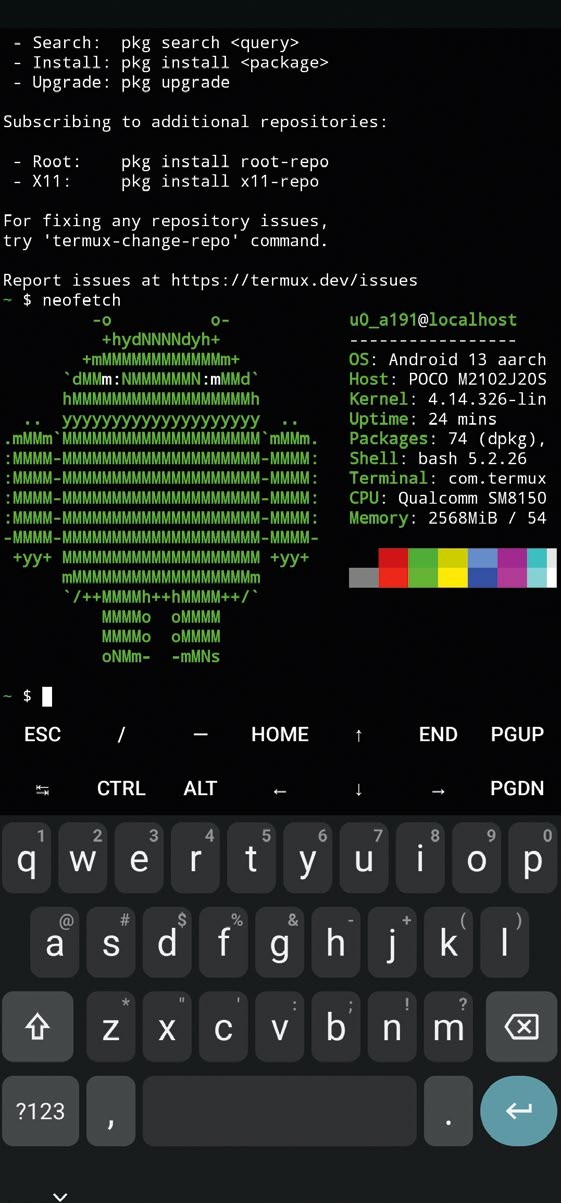Reasons to deGoogle
It’s difficult to see where the free bits of Android stop and the Googley bits begin, so allow us to elucidate.
QUICK TIP
The latest editions of Android are really keen on killing background apps; this causes issues with MicroG. Hunt down the power settings within Android and set it to run in the background and be able to restart itself.

The Universal Android Debloater Next Generation debloats your device by removing or disabling dubious system packages – see
https://github.com/Universal-Debloater-Alliance/universal-android-debloater-next-generation/.
R
eading this magazine, you are probably already aware that Android is based on Linux. If you’ve ever used an Android smartphone, though, you’ll also be aware that it doesn’t exactly look or feel particularly Linux-ey. Or maybe that’s just us. Anyway, rest assured that behind all those pretty Java (OK, fine, Kotlin) apps, a Linux kernel and userspace are running the show. Specifically the Android Open Source Project (AOSP), which is an operating system in itself, albeit a rather minimal one. It’s missing the Google apps, including the Play Store (so you need to first sideload an alternative marketplace in order to install apps). On top of that, if you want to run AOSP, you need to either port it to your device or use someone else’s port (from the likes of
xda-developers.com
, for example).
Many popular applications rely on something called the Google Services Framework (GSF). This is a proprietary package used to connect to Google’s services (such as Maps, Pay, Location Services) and to harvest data via your Google Account. Part of it, called Google Play Services, lurks quietly in the background (gently sapping your battery) and runs with administrator privileges. Non-Google apps use this to serve Google ads so that they can further big G’s mighty advertising revenue. It would be just grand if everyone decided they didn’t need Google Play Services in their lives. And you can definitely do that with AOSP derivatives such as LineageOS and /e/OS. But since some people rely on apps that in turn rely on Play Services, there’s a couple of ways of getting Play Services to play nice with non-Google Androids.